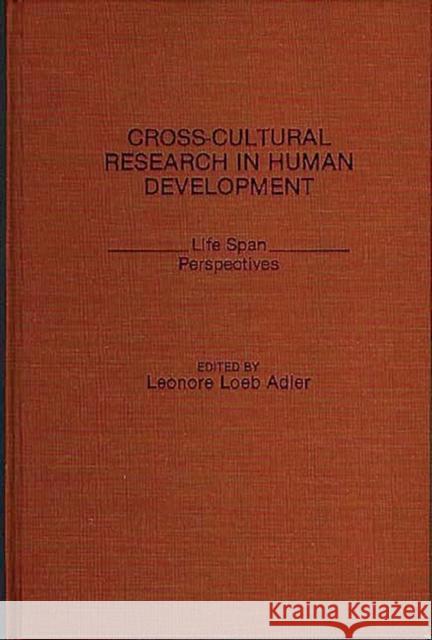Cross-Cultural Research in Human Development: Life Span Perspectives » książka
Cross-Cultural Research in Human Development: Life Span Perspectives
ISBN-13: 9780275930486 / Angielski / Twarda / 1989 / 308 str.
In this thought provoking book, Leonare Loeb Adler threads together 26 empirical studies that originated in diverse geographical areas. These studies present a comparison and greater understanding of the behavior of people living in a variety of different cultures. The focus on the book is well expressed in Dr. Adler's introduction in which she states that cross-cultural research recognizes that while the discovery of differences may be significant, the findings of similarities provide even more meaningful information. This book focuses on a variety of current cross-cultural and cross-ethic issues, which are pertinent to specific ages and stages in a life-span perspective. The broad interests and common concerns discussed are shared by people everywhere. Students and scholars in all the political and social science disciplines will find "Cross-Cultural Studies in Human Development" a source of stimulating ideas.
The book begins with a focus on childhood issues, including a Piagetian cognitive study in a Third World country. A report on a new test which assesses early and late stages of development in young school children of different cultures is followed by a chapter discussing applied behavior analysis in dealing with children in the classroom. In addition, there is a chapter on social concerns in childhood development. The second part of this book studies normal as well as handicapped adolescents in different cultures and presents detailed discussions on current issues such as therapeutic management of drug addiction as well as moral development. Part Three focuses on adulthood. The contributors address a wide range of topics including gender issues, attitudes toward extended family members, filial obligations to the elderly, and coming to terms with the death of a parent. Studies of topics important to the elderly complete this book's life-span perspective. The final section examines friendship and social support among old people in cross-cultural and cross-ethnic comparisons. Other chapters deal with disabilities and depression among the elderly, as well as a study of caregivers and counselors.











